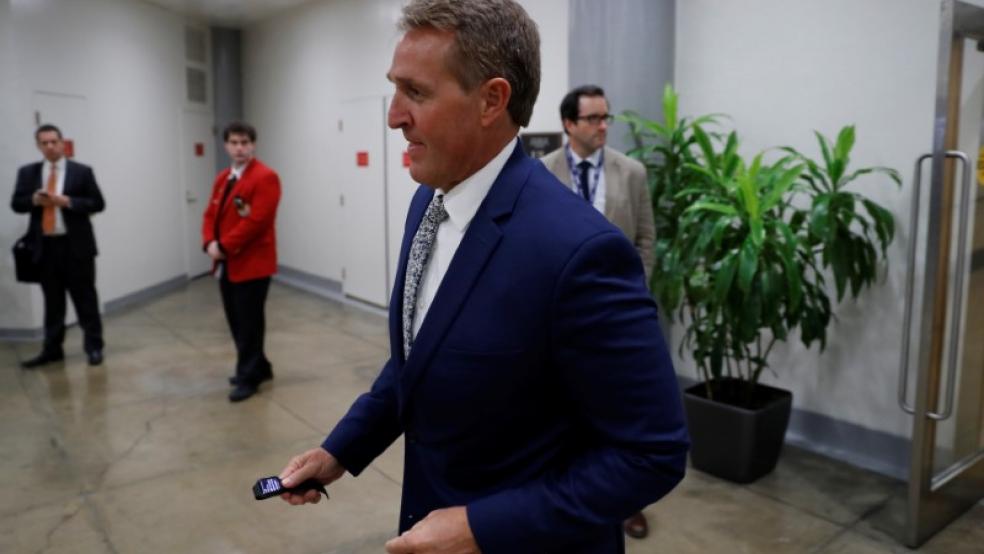There is one proven method of getting Donald Trump to turn over his tax returns for scrutiny, and that’s to have a judge order him to do it. The only known instance in which the president has been forced to hand over his returns was when Trump sued then-New York Times reporter Timothy O’Brien, who claimed in a book that the onetime reality TV star wasn’t as rich as he claimed to be.
In the discovery process, Trump was forced provide the defendant access to his tax returns. Trump’s suit was thrown out by a judge, but little is known about the contents of the returns he provided because they were sealed by the court.
Related: RNC Chair Calls For End to Trump Probe As Lines Harden Over Comey’s Testimony
However, the fact that Trump was forced to cough up the documents that he once promised to release, only to postpone doing so indefinitely, has been an animating force behind a number of lawsuits filed against him since taking office in January.
The latest of these, filed today by the attorneys general of Maryland and the District of Columbia, has perhaps the best chance of clearing the legal hurdle of having “standing.” Both jurisdictions have major tax-payer funded convention spaces that, since inauguration day, have found themselves losing business from foreign government delegations that are choosing to hold events at a competing space.
Normally, of course, a business can’t be faulted for being more attractive to clients than its competitors, but in this case, the business in question is the Trump International Hotel in Washington, which the president still personally owns, although he has transferred management responsibilities to his adult sons.
It’s not particularly surprising that foreign government delegations with business before the Trump administration might see the wisdom of patronizing one of the president’s personal properties. In fact, D.C. Attorney General Karl A. Racine and Maryland AG Brian Frosh will argue that the potential benefits to them are so obvious that the framers of the Constitution banned such transactions.
Related: Why Trump Is Almost Certainly Bluffing When It Comes to Comey
The “Emoluments Clause” of the Constitution was put in place to prevent foreign governments from buying the loyalty of U.S. officials through payments, titles, positions or other gifts. By accepting payment from foreign governments, the plaintiffs claim, Trump is in clear violation of the Constitution.
Shortly after taking office, Trump promised that all profits derived from foreign governments would be donated to the Treasury. So far, though, no plan to make that happen has been revealed. Additionally, when it comes to countries like Russia or China, where the distinction between the state and the private sector is blurry at best, it could be virtually impossible to distinguish the source of some payments.
Racine and Frosh, both Democrats, have made it clear that if they are granted standing, their first order of business will be to demand discovery — the production of documents and other information relevant to the case — from Trump. That will include the president’s tax returns.
However, there are good reasons to be cautious about the likelihood of the president’s tax returns suddenly being thrust into the public domain.
Related: How the Comey Hearing Made America Great Again
First of all, as the O’Brien case demonstrated, it is quite possible for tax returns to be turned over in the context of a lawsuit but to remain shielded from the public. There is every reason to believe that, if compelled to turn over tax filings, Trump and his attorneys would seek to have them sealed, as they did in the O’Brien case.
Then, there is the question of whether D.C. and Maryland will be granted standing. That will depend, at least in part, on their ability to claim that their convention centers are losing more business to the Trump International Hotel than they normally would have lost to a brand new hotel located in an historic building just blocks from the White House.
Finally, Trump would likely challenge any adverse ruling as strenuously as possible, which would ultimately send the case in the direction of the Supreme Court. That process alone could drag out over years, easily beyond the end of the president’s current term in January 2021.





